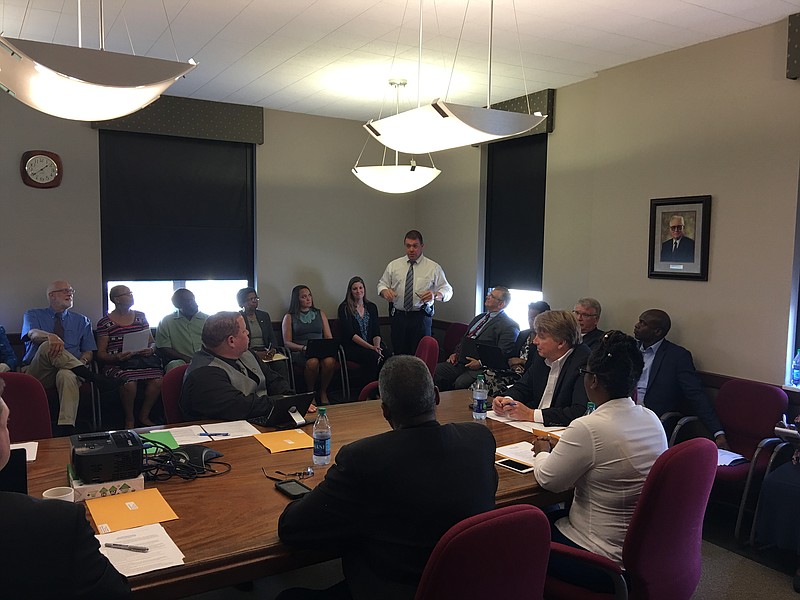The reinvigorated pension fund for Chattanooga's fire and police personnel means a lot to those who serve.
That's the message the Chattanooga City Council received from police Lt. Craig Joel, pension board president, on Tuesday. He thanked council members for supporting major boosts to public safety pension funding in the fiscal 2018 budget. Pension funding was one of several challenges that required a tax hike to meet in the city's new budget year.
"This is the anchor," Joel said of the revitalized pension program, which received $5.1 million more in the 2018 budget, amounting to a 38 percent increase over last year. "I've worked with officers who have been with five departments in a matter of five years. It's not that difficult."
The post-employment lifeline impacts everything, from stable service duty to providing for officers' families after they have passed away, Joel said.
"You've secured the professionalism and experiences we have brought to the city," Joel said, adding the new pension package also allows Chattanooga to be more competitive in attracting new talent to its public safety departments. "There's just nine departments in this immediate area. They have choices to go to."
Chattanooga City Council highlights
The council voted 9-0 to authorize the city to enter into an agreement with the United State Army Corps of Engineers to perform an erosion study for Renaissance Park. Federal money pays for the first $100,000 of the study. If costs exceed that, the city will split them with the federal government, up to $100,000.
The council also took a tour of gang member mindsets in a presentation by Sgt. Joshua May, coordinator of the police department's anti-gang efforts.
When it comes to understanding what drives young people to join gangs, May said, it means suspending rationality and seeing how gangs can fill needs not met at home, school or anywhere else. That's the allure.
"Most gang members will state they aren't a gang, they're a family," May said. "Gang members are mostly good people making bad decisions."
Poverty, lack of education and difficult home lives leave them susceptible to what gangs can offer, he said.
May also cautioned that social media not only aggravates conflicts among rival gang members, but can quickly escalate insults and disputes into a series of drive-by shootings.
"It's an 'us' problem," May said, adding privilege is no guarantee of protection. "If you think your kids are immune to it, your head's in the sand."
Councilman Russell Gilbert agreed with May.
"This is an issue all over the city," Gilbert said. "It will come to you eventually."
Gang members and those drawn to gang life have to be offered options, including mentoring and career trades, he said. The solution won't be found in the jails, but in cutting off the flow of gang recruits.
Councilwoman Demetrus Coonrod voiced support for more options to keep young people away from the gang path, citing how mentors had played a role in turning around a notorious gang member in her community.
"These are our babies, our children," Councilman Anthony Byrd said, thanking May and the police command staff for their willingness to seek a collective solution to the city's gang violence.
Contact staff writer Paul Leach at 423-757-6481 or pleach@timesfreepress.com. Follow him on Twitter @pleach_tfp.
